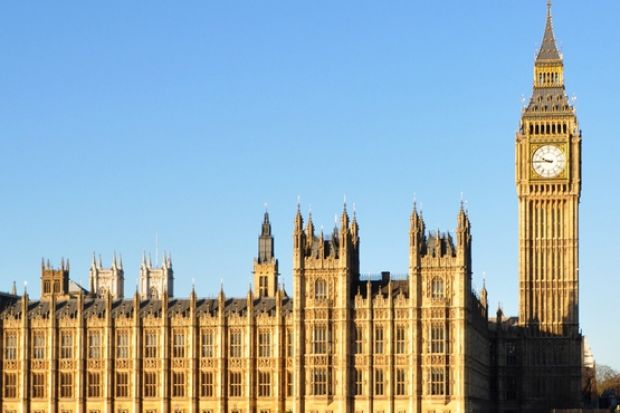The Joint Committee on Human Rights today advises that the government should remove universities from the list of authorities covered by proposed new powers in the Counter-Terrorism and Security Bill.
The bill – scheduled for its second reading in the House of Lords on 13 January – would give the home secretary the ultimate authority to take legal action to force universities to ban “extremist” speakers from campus if they consistently failed to tackle concerns.
The bill puts a duty on specified public authorities, including universities, to “have due regard, in the exercise of its functions, to the need to prevent people from being drawn into terrorism”.
The Joint Committee on Human Rights, made up of MPs and peers, says in a report on the bill that it is “concerned about the implications for both freedom of expression and academic freedom as a result of the applicability of the proposed new duty to universities”.
The committee adds: “Broad terms such as ‘extremist’ or ‘radical’ are not capable of being defined with sufficient precision to enable universities to know with sufficient certainty whether they risk being found to be in breach of the new duty and therefore subject to direction by the Secretary of State and, ultimately, a mandatory court order backed by criminal sanctions for contempt of court.”
And it continues: “We recommend that the Bill be amended to remove universities from the list of specified authorities to which the new duty applies.
“Alternatively, we recommend that the Bill be amended to add the exercise of an academic function to the list of functions which are excepted from the application of the duty.”
Hywel Francis, Labour MP for Aberavon and chair of the committee, said: “As open and rigorous debate about ideas is itself one of the most powerful tools in the struggle against terrorism and the extremism which often breeds terrorism, this is surely counter-productive.”
The government says in its consultation on changes to Prevent, the counter-extremism strategy, that it is “considering expanding the current powers of the Higher Education Funding Council for England to allow it to become the body which monitors compliance with this duty for higher education institutions and private HE providers”.
Martin Hall, the former University of Salford vice-chancellor, writing for Times Higher Education, has questioned whether “these new statutory obligations on universities [could] be used against opponents of fracking, or animal rights activists, or anti-nuclear movements, or any radical opposition to the status quo”.




